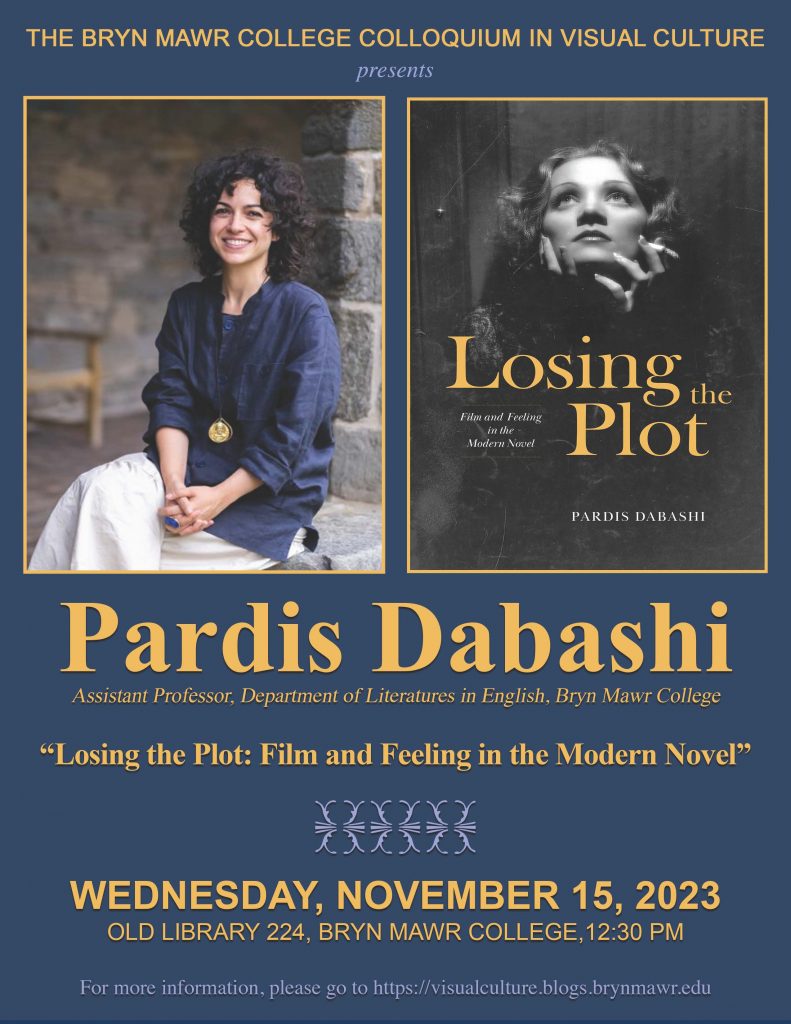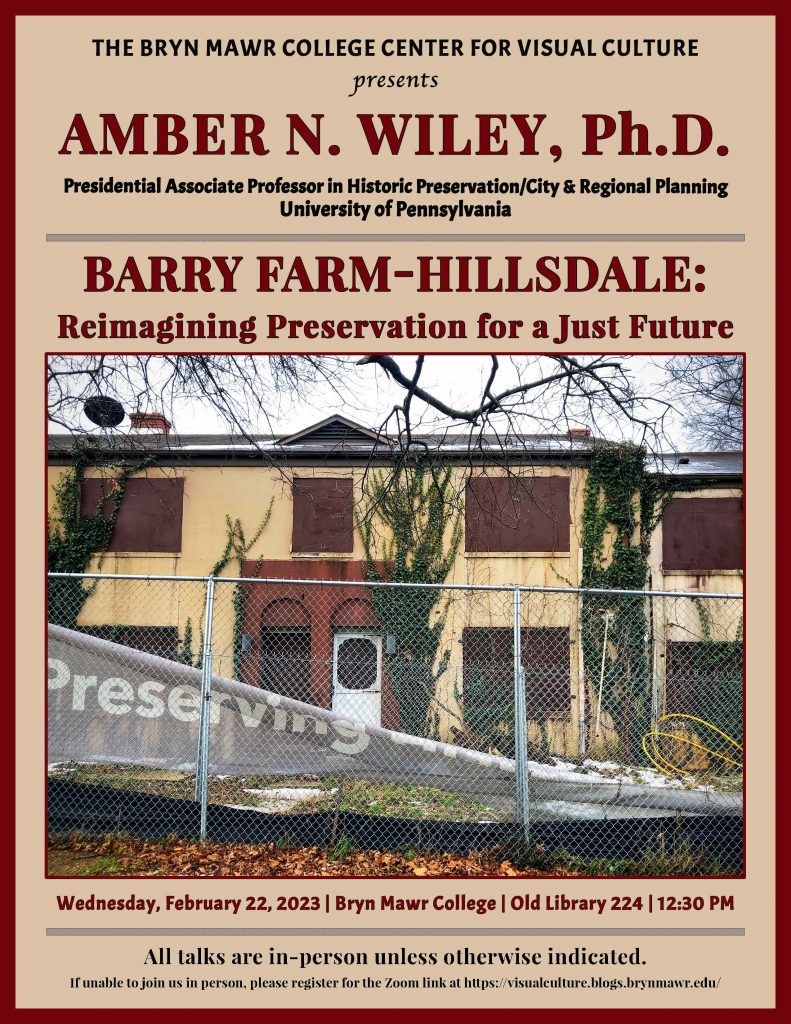“Losing the Plot: Film and Feeling in the Modern Novel”
Category Archives: Events
November 29, 2023-Jennifer Hirsh CANCELLED
Professor of Modern and Contemporary Art
Maryland Institute College of Art (MICA)
“Over My Dead Body: Puppets, Performance, and Paralysis in Cardiff and Miller’s The Marionette Maker (2014)”
Best known for their interactive sound and video “walks,” interdisciplinary media artists Janet Cardiff and George Bures Miller use musical, vocal, and mechanical sounds to complicate viewers’ perception of subjectivity, time, and place. In addition, the artists have designed a number of complex, multi-sensory installations, and tableaux vivants that include unexpectedly mechanized components. Commissioned and produced by the Museo Nacional Centro de Arte Reina Sofia in Madrid, The Marionette Maker (2014), the focus of this paper, is one such example. It consists of a modified caravan that incorporates multiple staged performances within its compartmentalized, dimly lit interior, wherein images of Cardiff and Miller appear, respectively: she as a life-sized reclining figure and he as diminutive marionette maker who is moved by a set of puppet strings. As this chapter argues, The Marionette Maker is thus ventriloquial not only in its forms, but also in its logic and themes, serving as the artists’ most overt engagement with a phenomenon (ventriloquism) that arguably underwrites, in admittedly more conceptual ways, their work as a whole.
Image: Detail of Janet Cardiff and George Bures Miller, The Marionette Maker (2014)
February 1, 2023 – Director’s Welcome
Lecturer in The Department of History of Art
Director of the Center for Visual Culture
Bryn Mawr College
If unable to join us in person, please register here.
February 15, 2023 – Afrykas and the Magic Box film screening + Q&A
5-7 PM
Old Library 110
February 22, 2023 – Amber N. Wiley, PhD
University of Pennsylvania
“Barry Farm-Hillsdale: Reimagining Preservation for a Just Future”
This talk is about the fight to preserve a public housing project in Washington, DC, its local listing as a DC landmark, and subsequent (and ongoing) efforts to commemorate its history while also envisioning a new version of preservation that puts people first. Major themes include architectural integrity, cultural landscape theory student and community engagement in the visioning process, and the production of a documentary film.
There will actually be a screening of the film at Penn on March 1: https://cpcrs.upenn.edu/events/barry-farm-community-land-justice-washington-dc.
March 22, 2023 – Cassandra Good
Marymount University
If unable to join us in person, please register here.
March 23, 2023 – Dipti Khera
Associate ProfessorDepartment of Art History and Institute of Fine Arts
New York University
“Ecologies of Emotion: To Sense and See Udaipur’s Monumental Monsoon Moods, 1700-1900”
Bryn Mawr College
Carpenter Library B-21
4:30-6PM
Dipti Khera is Associate Professor in the Department of Art History and the Institute of Fine Arts at New York University. As a scholar of early modern South Asia, with interdisciplinary training in art history, museum anthropology, and architecture, her research and teaching integrate longue durée perspectives and Indian Ocean and Eurasian geographies. Along with specializing in paintings, books, letters, and maps made in northern and western India, she has published on the crafting of colonial taste and foregrounded vernacular objects that reveal global art history’s blind spots in narrating stories of mobility, power, and emotional entanglements.
March 29, 2023 – Joseph Scheier-Dolberg
Joseph Scheier-DolbergOscar Tang and Agnes Hsu-Tang Associate Curator of Chinese PaintingsAsian Art, The Metropolitan Museum of Art
“Contemporary Chinese Painting in 1940s New York City”
If unable to join us in person, please register here.
April 12, 2023 – Dr. Martha Lucy
Barnes Foundation
Toilette scenes showing women primping before a mirror—applying makeup, lacing up corsets, brushing out hair—were everywhere in late nineteenth-century Paris. This talk will explore the widespread practice, detailed in French novels as well as in art and visual culture, of men paying for the privilege of watching a woman perform these intimate rituals. Why did the fashioning of one’s self-image hold so much erotic potential in the nineteenth-century imagination? How might we deconstruct the complex network of gazes at work in these images?







